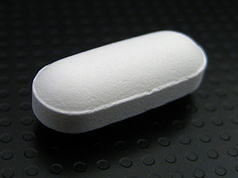Study Says FDA Could Be Doing Better At Publicizing Drug Recalls
Although the U.S. Food and Drug Administration recalls drugs that could be harmful around once a month, a new study says the agency has room for improvement when it comes to publicizing those recalls and informing doctors and patients about them.
Researchers found that over a period of eight years, the FDA didn’t send notifications for one in five of the most serious recalls it issued, using two electronic systems used to alert the public as well as doctors, reports Reuters.
These are what the FDA calls Class 1 recalls — drugs that if taken, could potentially cause “serious adverse health consequences or death.”
Included in one of these Class 1 recalls was the blood thinner heparin, which was contaminated in2008 and was reported for resulting in serious reactions and some deaths in dialysis patients.
Some experts suggest that any Class 1 recall should be communicated, while perhaps leaving out less important Class II and Class III recalls.
Researchers found more than 1,700 drug recalls listed in the FDA’s enforcement reports between 2004 and 2011, with 91 of those being serious Class 1 recalls. In that same time period, the FDA issued around 2,900 announcements through its Recall Alert System, but the system only sent alerts for 55 of the Class 1 recalls.
Another system, MedWatch, sent out alearts for 18 of the remaining recalls, which left 18 more recalls that never had alerts sent out about them at all.
“Despite recent efforts by the FDA to address the drug recall burden, health care providers may be inadequately informed about clinically important recalls that threaten patient safety,” wrote the authors of the study in a letter to the Archives of Internal Medicine on Monday.
An FDA spokesperson told Reuters the agency uses many ways to communicate with doctors, but wasn’t able to say why those 18 cases never had an alert sent out.
Researchers suggested that there should be an active tracking system for drugs, so that all pharmacists know which bottles the recalled products come from. In the meantime, drug companies could also send letters directly to doctors about the recalls.
For the FDA’s automatic email notices about recalls, check out 1.usa.gov/MbBGEu or on Twitter: @FDArecalls.
U.S. drug recalls common, not well publicized: study [Reuters]
Want more consumer news? Visit our parent organization, Consumer Reports, for the latest on scams, recalls, and other consumer issues.


